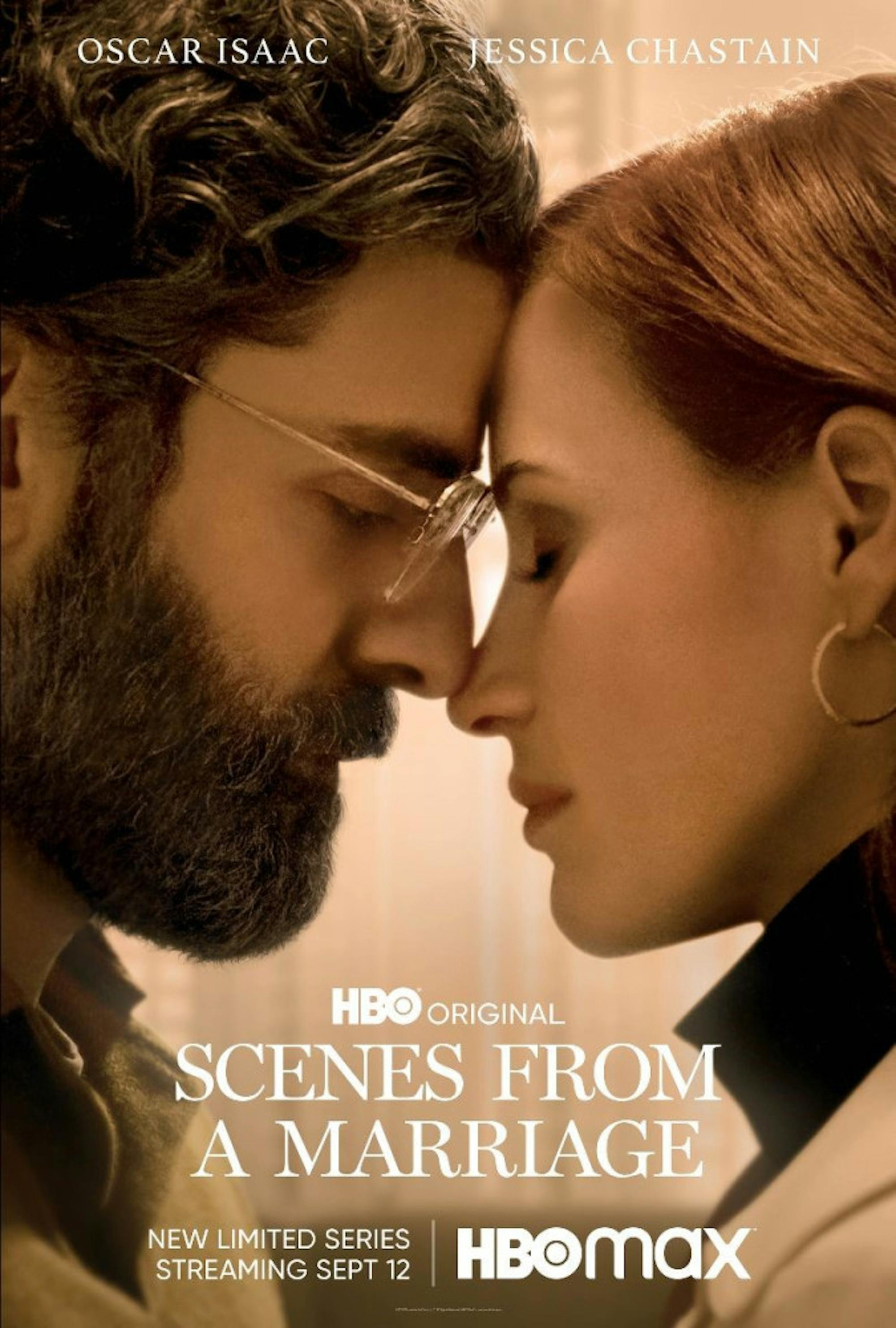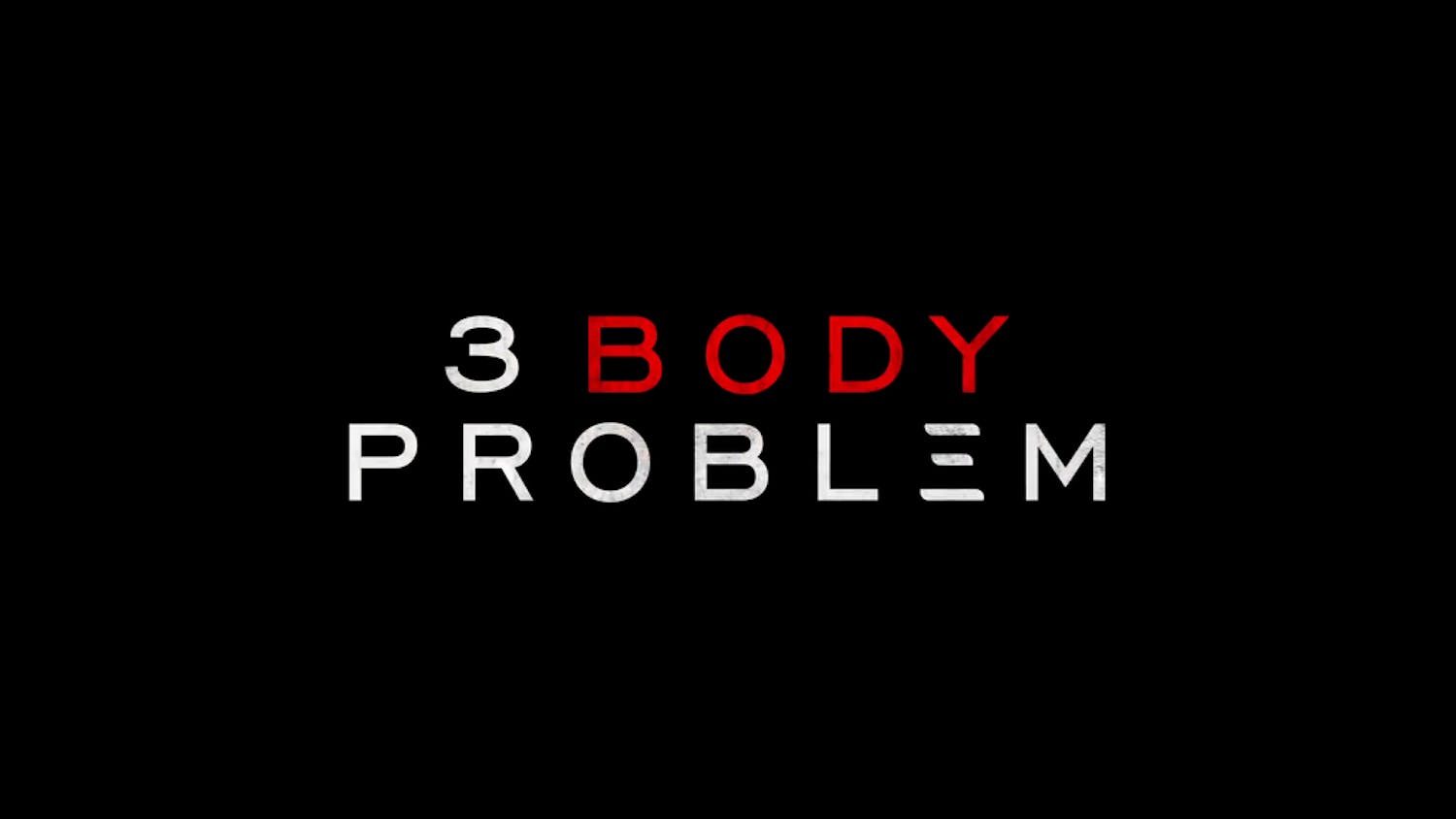Disclaimer: This article contains spoilers for "Scenes from a Marriage" (1973) and "Scenes from a Marriage" (2021).
Abstract humanity is incredibly difficult to capture. Still, “Scenes from a Marriage” (2021) seems to reach this bar, providing a nuanced outlook on the basic fallibility of human action. “Scenes from a Marriage”presents a modern relationship, one with flaws and texture. In doing so, the series serves both as a breath of fresh air in its authenticity, but also as a deep philosophical think piece on the role of social institutions in our lives.
“Scenes from a Marriage” follows Mira (Jessica Chastain) and Jonathan (Oscar Isaac), a married couple whose relationship slowly disintegrates and rebuilds throughout the show. Mira and Jonathan have a seemingly strong relationship from the outset, with both of them even passing judgments on their polyamorous friends (Kate, played by Nicole Beharie, and Peter, played by Corey Stoll) in the first episode. It’s not long, however, until Mira reveals an affair she’s been having with a coworker and the marriage begins to fall apart. The following episodes unravel Mira and Jonathan’s connection. The series is based on a 1973 Swedish miniseries of the same name, but updates the relationship and the social dynamic for a modern context.
It’s important to start with a warning: “Scenes from a Marriage” is not mindless television. The show is quiet and introspective, employing silence frequently and effectively. Watching this series is a deeply uncomfortable experience, and thus is not for the faint of heart. So, when looking for some easy television to cap off your day or to take the edge off, do not turn to “Scenes from a Marriage.” Rather, watch this show if you want to think, learn and grow from it. One thing is for sure: This show provides a multitude of food for thought.
For that, credit must be given to writer and director Hagai Levi, who was the mastermind behind the series. “Scenes from a Marriage” is namely a feat of directing, with every single shot being thoroughly intentional and thought out. Even the weather patterns are intentional: Levi uses snow during the initial separation, and rain during Mira and Jonathan’s worst fight. The series is highly literary. Watching it feels like picking apart a text or watching a play, looking for Levi’s influence and finding his specific intentions.
Levi’s work is personified in the characters of Mira and Jonathan, who are both complex and well fleshed out. Mira and Jonathan are both incredibly flawed human beings, but in nuanced ways that give the piece authenticity. Levi chooses not to dwell on these flaws, but rather allows each character’s problems to slowly present themselves and be addressed throughout the course of the dialogue. The peak of this choice is the religious narrative of the show: Jonathan is a formerly Orthodox Jew, whereas Mira does not actively practice religion. This interfaith tension seeps into the narrative slowly, so that when Mira finally says that she has not been able to actively express her sexuality in front of Jonathan, it’s not shocking. There is not much exclamatory dialogue in this show, but rather built-up tension that eventually boils over into psychological chaos. This slow build makes “Scenes from a Marriage” a masterclass of screenwriting, and writing specific and directed characters.
To some extent, “Scenes from a Marriage” also serves as a feminist exploration. In adapting the show from the 1973 miniseries, Levi decided to swap the gender roles. In this modern adaptation, Mira is the primary breadwinner, the one who has the first affair and the one who eventually breaks off the marriage. Though both are deeply flawed, Mira is portrayed as being impatient and often cruel to Jonathan. Though some might interpret this move as villainizing women, the creation of a truly complex and often ill-willed female character can also be seen as a deeply feminist action. Mira is allowed to be problematic and allowed to be an antihero, but she is far from a monolith.
All in all, “Scenes from a Marriage” is a manifesto on power, dialogue and human connection. The show is muted and thoughtful, making it deeply philosophical but likewise divisive. It’s for a very specific person, and that person may not be you. If you read this review and found it to be an interesting moral inquiry, watch it. If you found this review to be filled with off-putting intellectual perspectives, maybe it’s not for you. No matter our individual stylistic opinions, “Scenes from a Marriage” offers a fresh and nuanced view of why we form our relationships, how we maintain them and why they eventually fall apart.






